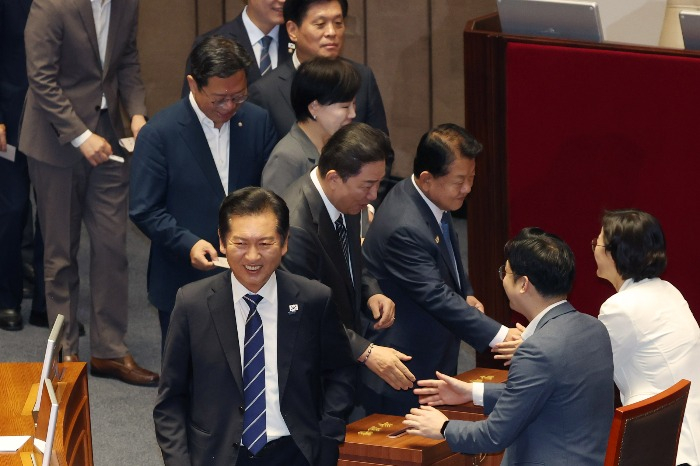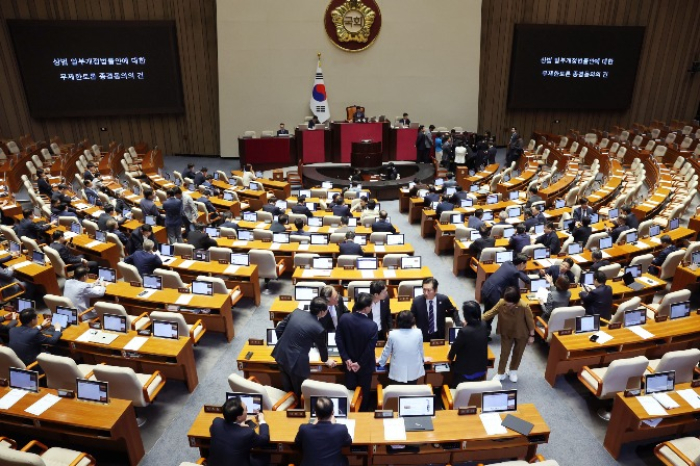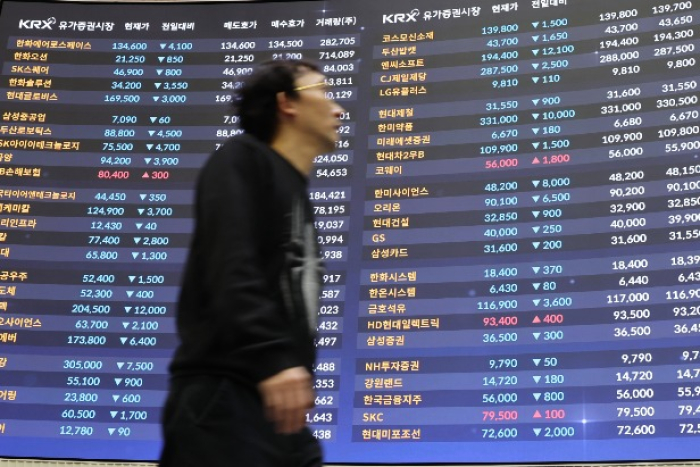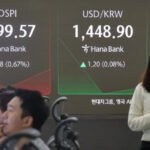
South Korea’s National Assembly on Monday passed an amendment to the Commercial Act designed to give minority shareholders greater sway in proxy battles and bolster the independence of outside directors, the latest in a series of corporate reforms that have drawn resistance from the business community.
The ruling Democratic Party, which controls a parliamentary majority, pushed the amendment at a plenary session, securing 180 votes in the 252-seat legislature.
Two Reform Party members cast absetention ballots, while the main opposition People Power Party boycotts the vote.
The legislation requires listed companies with assets more than 2 trillion won ($1.4 billion) to introduce a cumulative voting system, enabling minority shareholders to concentrate their votes on specific board candidates in proxy fights.
Another key change mandates that listed companies raise the number of audit members elected separately from the board of directors to at least two from the current one.

The two provisions were among the key measures originally proposed for the corporate reform, but were left out of the first amendment to the Commercial Act under the current administration.
The first amendment, passed by the National Assembly in July, was intended to strengthen individual shareholder protections by broadening the board’s fiduciary duties to serve not only the interests of the company, but also those of its shareholders.
In March, the parliament passed the original corporate reform bill, but it was vetoed by then acting President Han Duck-soo.
KOREA DISCOUNT
“The Democratic Party will continue pushing reforms to improve the lives of the people,” said Jung Cheong-rae, the Democratic Party’s leader, on Facebook after passing the amended Commercial Act on Monday. “The greatest reform means the greatest livelihood for the public.”
The ruling party touted the new bill as a milestone that would drive the Kospi index to 5,000 points, a level yet to be reached in South Korea’s stock market history but pledged by President Lee during his campaign.
“It is a stepping stone to resolve the Korea Discount, the biggest drag on South Korean economy,” Kim Byung-kee, the ruling party’s floor leader, said on Facebook. “We hope to create a healthy market ecosystem, where companies and shareholders can grow together.”

The opposition People Power Party backed the initial amendment to the Commercial Act, but opposed the second, staging a filibuster that ultimately failed.
LABOR REFORMS, TAX HIKES
With the passage of the new corporate reform bill, companies in South Korea face a triple whammy at home — tougher corporate reform rules, labor-friendly laws and a higher top corporate tax rate – coupled with US tariff hikes abroad
On Sunday, the ruling party pushed through the passage of the so-called Yellow Envelop Act for sweeping labor reforms by amending the Labor Union Act.
The legislation holds companies’ top management more accountable for industrial accidents and heighten their exposure to labor disputes.
By Yeonhee Kim
yhkim@hankyung.com
Jennifer Nicholson-Bree edited this article.















